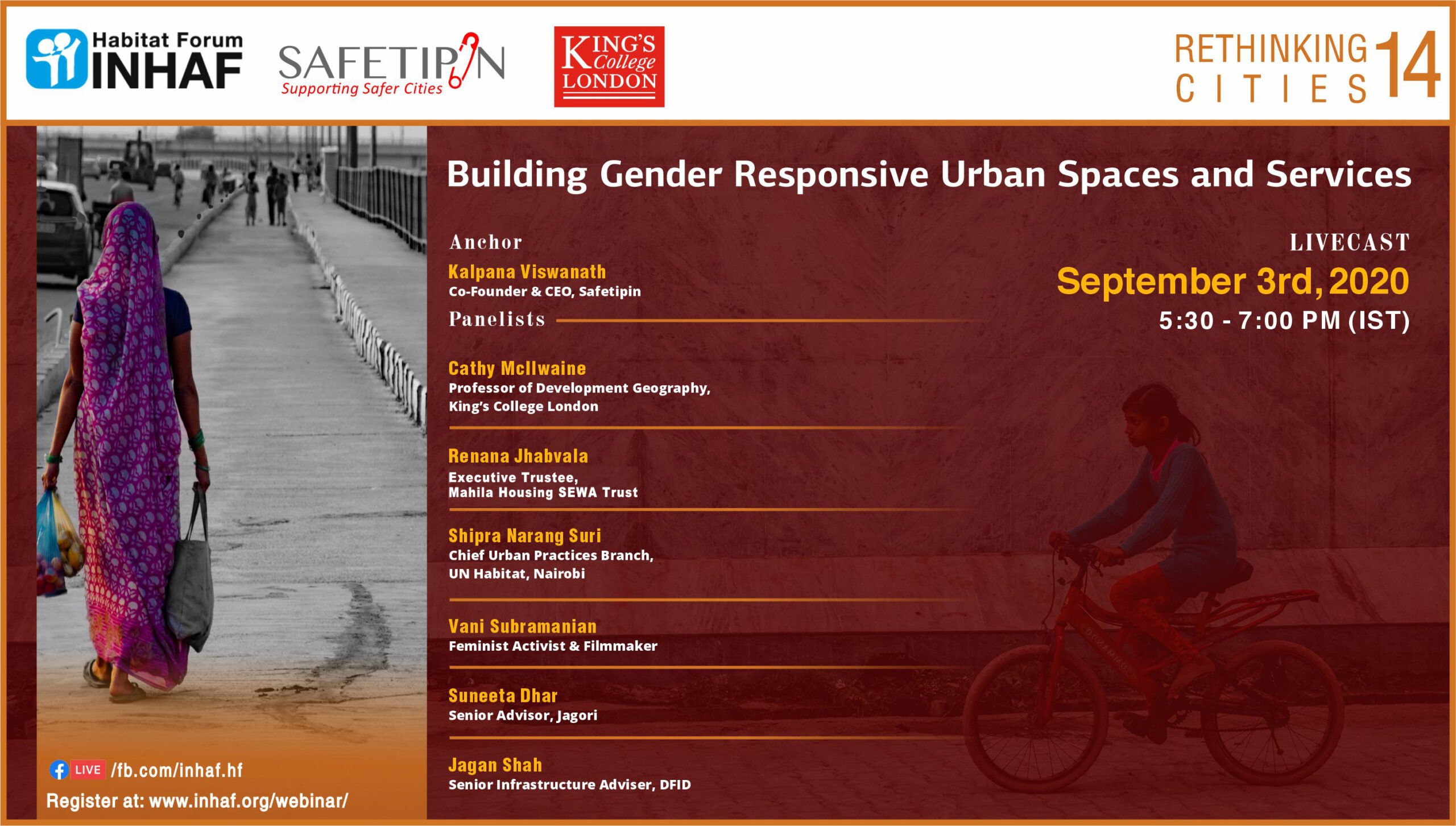
Local Time
- Timezone: America/New_York
- Date: Sep 03 2020
Building Gender Responsive Urban Spaces and Services
Senior Infrastructure Adviser, Department for International Development (DFID) India
The city is the site of everyday practice for the production and reproduction of social relations and social practices and consequently functions as a key site in the production, consumption and reproduction of gendered norms and identities. At the same time, cities are themselves shaped by the gendered embodiment and social reality of daily routines. Because of the feeling of insecurity, women do not experience the full rights to either use the city or to participate in its economic, social, cultural and political life.
Urban spaces provide new opportunities for people to build their homes and lives, but often reinforce existing inequalities and create new ones. Gender plays a key role in how people experience urban environments. Further, gender cuts across other identities such as disability, age, sexual orientation, race, ethnicity, and religion in determining the right to the city, its spaces an services. We have seen recent trends of the feminisation of poverty and the declining workforce participation of women in India. Further the majority of women work in the informal sector. Violence takes place along the continuum of spaces that women occupy – their homes, streets, work places and affects their everyday lives and restricts their movement and freedom to exert their right as citizens of the city – freedom to move, study, work, and leisure.
The speakers in this webinar will examine different aspects of how gender determines the experience as well as the right to the city. The following themes will be explored – women workers (particularly in the informal sector), access to public spaces and services with a focus on the most vulnerable in our cities, violence and fear as everyday experiences. The discussions will address these issues from a variety of perspectives based on the experience of the speakers that include urban planners, social scientists, activists, policy researchers and film maker, who will analyse not only the Indian experience but bring in global scholarship as well.
